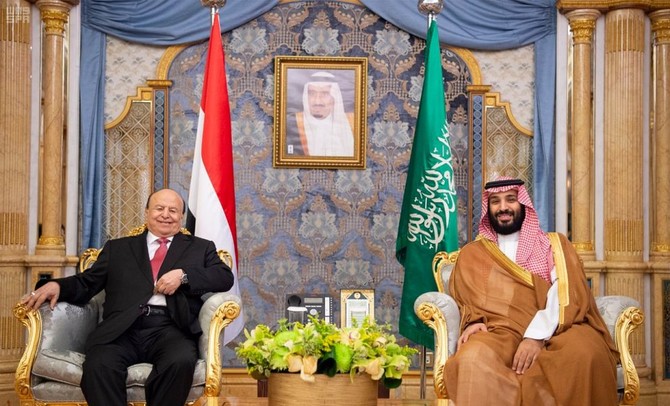Alwaght- Abd Rabbuh Mansur Hadi was forced resign as the self-proclaimed President of Yemen under Saudi Arabia’s pressure, The Wall Street Journal reported on Sunday.
On April 7, Hadi announced that he had delegated his powers to the “presidential leadership” council and dismissed vice president Ali Mohsen al-Ahmar after seven years of Saudi-led war aimed to reinstall him had failed to achieve its goals.
The American daily cited anonymous Saudi and Yemeni officials as saying that Saudi Arabia’s Crown Prince Mohammed bin Salman (MBS) gave Hadi a written decree transferring his powers to the council.
According to the report, Hadi implemented the order after some Saudi officials threatened him to disclose what they said was evidence of his corruption.
The WSJ said officials have confined Hadi to his home in Riyadh and denied him access to phones since the day he announced his resignation.
The announcement followed talks on the Yemeni conflict held by the Persian Gulf Cooperation Council (GCC) at the regional union’s headquarters in Riyadh. Yemen’s popular Ansarullah resistance movement had boycotted the summit, insisting that it would not travel to enemy territory for talks.
Hadi’s move also came days after a fragile two-month truce, brokered by the United Nations, came into effect.
Saudi Arabia had welcomed Hadi’s decision, urging the council to start negotiations with the Ansarullah movement.
The kingdom also said it would arrange $3 billion of support to Yemen’s economy.
This is while the Saudi regime is widely blamed for the current humanitarian catastrophe in Yemen, where about 80 percent of its 30 million population are in need of some form of aid for survival.
Ansarullah said Hadi’s move has deprived the United Nations of its excuse to continue supporting the aggressors in the seven-year Saudi-led war.
“The international community and the UN no longer have an excuse to continue using the term ‘internationally recognized Yemeni government’ to massacre the Yemeni nation and enforce a tight siege on the Arab country,” Ansarullah spokesman Mohammed Abdul-Salam said on April 7.
Hadi had once resigned from presidency in early 2015 and later fled to Riyadh amid a popular uprising led by the Ansarullah movement. He rescinded his resignation after arriving in Saudi Arabia.
To reinstall Hadi, Saudi Arabia launched the bloody war against Yemen in March 2015 in collaboration with a number of its allies and with arms and logistics support from the US and several Western states.
The objective was to bring back to power the Hadi regime and crush the Ansarullah resistance movement, which has been running state affairs in the absence of an effective government in Yemen.
The war has stopped well short of all of its goals, despite killing hundreds of thousands of Yemenis and turning the entire country into the scene of the world’s worst humanitarian crisis.



























